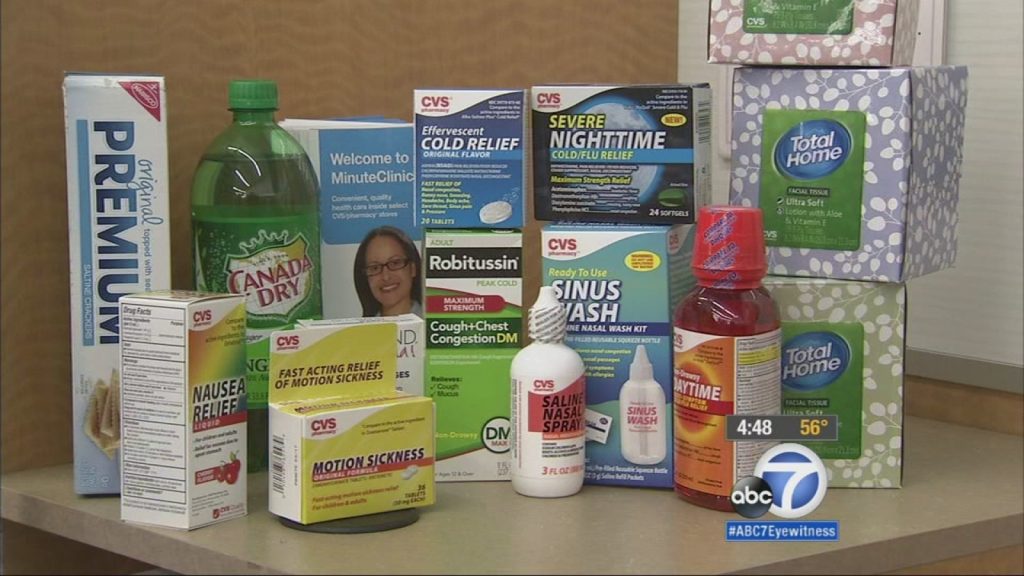

Dealing with illness while solo traveling can be a daunting prospect, but it’s manageable with careful planning and a proactive approach. This guide will equip you with the tools and knowledge needed to navigate any health concerns that might arise, allowing you to fully embrace the freedom and exhilaration of solo exploration. We’ll cover everything from preventative measures to managing emergencies in unfamiliar environments. The structure of this article will first delve into the importance of proactive preparation, followed by practical advice on accessing healthcare abroad, and finally, strategies for handling unexpected health issues. Ready to learn how to travel smart and stay healthy?
Proactive Planning: Preparing for Health Concerns
Understanding Potential Risks
One of the most crucial steps in dealing with illness during solo travel is proactively planning for potential health problems. Before your trip, carefully research your destination and its potential health risks. This includes identifying any prevalent diseases, allergies, or conditions specific to the region. Consult your doctor for specific recommendations, including vaccinations, necessary medications, and potential health precautions. Consider any activities you plan on doing and what risks they pose to your health. For example, if hiking, consider the altitude and your physical condition.
Building a Health Support System
A strong support system is essential during solo travel. Before you leave, inform a trusted friend or family member of your itinerary and emergency contact details. This will allow them to keep an eye on you remotely, contact local authorities in case of an emergency, and provide support if needed. This can give you peace of mind to focus on the enjoyable parts of your journey without worrying excessively about potential health problems. Ensure you have emergency contacts listed clearly in your phone and accessible while traveling.
Packing a Comprehensive Travel Medicine Kit
A well-stocked travel medicine kit should include essential items such as pain relievers, anti-diarrheal medications, allergy medication, motion sickness medicine, and any personal prescription medications. Consult with your doctor for recommendations tailored to your health conditions and the destinations you plan on visiting. Ensure that all medications are properly stored and labeled. Keep a supply of basic first aid materials such as bandages, antiseptic wipes, and gauze in your pack as well.
Accessing Healthcare Abroad
Researching Local Healthcare Options
Knowing the local healthcare system is crucial for managing any unexpected health issues. Research local hospitals, clinics, and pharmacies in advance. Knowing the location of these facilities and their operating hours could save precious time during an emergency. Some countries may require a letter of introduction from your home country’s healthcare provider for you to receive prompt treatment.
Understanding Travel Insurance
Before traveling, invest in comprehensive travel insurance, specifically focusing on medical coverage, as health issues can cause serious financial strain. Understand the policy’s coverage limits and limitations for repatriation. Ensure the insurance covers potential situations such as medical emergencies, evacuation, or necessary repatriation if required. Review the policy details and ask clarifying questions before your journey.
Utilizing Local Resources
Don’t hesitate to consult local medical professionals or health authorities if needed. If you encounter a situation where your health condition requires specialist care, don’t hesitate to seek help in local medical centers. This could include seeking advice on potential local treatments or connecting you to the necessary facilities. Having a plan to deal with different kinds of medical issues is essential.
Handling Unexpected Health Issues
Identifying and Managing Common Illnesses
Familiarize yourself with common travel ailments and how to manage them. Be prepared for conditions like traveler’s diarrhea, altitude sickness, and insect bites. Know the symptoms and treatment options available in your destination. If the health condition requires professional help, contact local healthcare services immediately. Having quick access to local medical facilities is vital.
Adapting to Unforeseen Circumstances
Solo travel often involves navigating unpredictable situations. Developing adaptability in addressing health issues is essential. If you are dealing with a severe health condition, adjusting your travel plans could be necessary. Be prepared to adjust your itinerary if necessary and prioritize your safety and well-being. This is especially important when dealing with situations that could lead to possible health complications.
Staying Informed and Connected
Staying informed about your destination’s health alerts or advisories is important. Monitor any travel advisories or health warnings that the government agencies in your home country and destination may have. Consider using a satellite phone or a portable Wi-Fi device to maintain communication, especially in areas with limited cell service. This could come in handy if you need to contact emergency services, friends, or family for support.
Seeking Immediate Help During Illness
Recognizing Symptoms and Responding Promptly
Be vigilant about recognizing symptoms of serious illness. If you experience severe pain, fever, vomiting, or other concerning symptoms, seek immediate medical attention. Don’t delay, and if your condition worsens, do not hesitate to go to the local hospital.
Understanding Local Emergency Procedures
Understand local emergency procedures and contact information before your trip. Familiarize yourself with how to access emergency services in your destination and have the contact information readily available.
Utilizing Communication Tools
Maintain communication with your support network and utilize communication tools, such as instant messaging apps or voice calls, to ensure you get the necessary support in handling your condition.
The Importance of Prevention
Maintaining a Healthy Lifestyle
Maintaining a healthy lifestyle before, during, and after your trip is crucial. This includes eating nutritious meals, getting enough sleep, and staying hydrated. Proper hydration can prevent issues like dehydration or altitude sickness. This practice will also help you maintain a higher energy level while traveling.
Practicing Safe Food Habits
Be mindful of food safety practices while traveling. Prioritize eating at well-regarded restaurants or establishments with proper hygiene practices. This helps reduce the risk of foodborne illness or infections. Choose safer food options when necessary.
Avoiding Unnecessary Risks
Be aware of potential hazards and dangers in your surroundings. Avoid risky behaviors that could lead to injuries or accidents. Following safety guidelines and being careful when engaging in risky activities can help maintain your health and safety.
Important Considerations
Cultural Sensitivity
Respect local customs and traditions while seeking medical care. Be open to understanding differences in approach, as healthcare practices and expectations can differ between cultures.
Emotional Well-being
Dealing with illness while traveling, especially solo, can be emotionally taxing. Prioritize your mental and emotional health. Seek support from your support system or engage in activities that help you relax and cope with stress.
Learning Essential Phrases
Learning basic phrases in the local language will help with communication, especially if you’re unfamiliar with the local healthcare system. This can come in handy during times when translation services are unavailable.
Understanding Your Health Conditions
Managing Chronic Conditions
If you have pre-existing conditions, plan accordingly and discuss your conditions with your doctor before your trip. They can provide you with customized care and instructions on managing medications while you are traveling.
Dealing with Medication Needs
If you’re taking medication, be sure you have enough to last your trip, and ensure it’s stored correctly. Also, consider carrying your prescriptions in their original packaging to show that you have the correct medicine.
Packing Essentials
Be prepared for unexpected delays. Pack a small emergency bag with essential items such as medications, documents, and emergency supplies.
Utilizing Technological Solutions
Health Tracking Apps
Many health tracking apps can assist in monitoring your health while traveling. These apps can monitor your vital signs, track your medications, and allow you to document any symptoms.
Online Medical Resources
Utilize online medical resources for general information and health advice when appropriate, especially if you have access to reliable medical websites.
Medical Communication Platforms
Explore medical communication platforms to connect with healthcare providers remotely if needed, particularly when dealing with a chronic condition or long-term illness.
Proactive Measures for Maintaining Health
Following Local Health Guidelines
Always follow local health guidelines, especially regarding food and water safety. Local guidelines are developed to ensure the safety of residents and travelers from potential diseases and harmful materials.
Staying Hydrated
Adequate hydration is critical for overall well-being, especially during travel. Carry a reusable water bottle and prioritize water consumption. This is especially important for conditions such as altitude sickness.
Ensuring Proper Hygiene
Proper hygiene, such as frequent handwashing and maintaining personal cleanliness, helps prevent the spread of illnesses. Practice good hygiene practices and consult with local authorities on proper sanitation and hygiene procedures in your destination. This is especially important when dealing with different cultural expectations.
Dealing with Illness While Solo Traveling: Frequently Asked Questions
What if I get sick during a long backpacking trip and don’t have easy access to healthcare?
When traveling solo, unexpected illnesses can be particularly challenging. Before you embark on your journey, ensure you have comprehensive travel insurance that covers medical expenses and repatriation. It’s also wise to research local healthcare options in your destination. Many destinations offer affordable clinics or hospitals, but knowing how to access these resources and having a backup plan for emergencies is vital. If possible, share your travel itinerary and emergency contact information with a trusted friend or family member back home. This way, they can assist in case of a medical emergency.
What are some common health issues travelers face while solo traveling?
Common health concerns for solo travelers include foodborne illnesses, traveler’s diarrhea, altitude sickness, insect bites, and injuries from accidental falls or mishaps during activities. Staying hydrated, eating cautiously, and following safety precautions can greatly reduce the risk of encountering such issues. Be sure to talk to your doctor about vaccinations, necessary medications, and recommended precautions in relation to your destination and activity level. Preparing your backpack with necessary supplies can also aid you in handling any minor issues that may arise on the road.
What types of precautions can I take to avoid getting sick while solo traveling?
Taking precautions is crucial for maintaining your well-being during solo travel. Pack a well-stocked travel medicine kit, including pain relievers, anti-diarrheal medications, and any personal medications. Stay hydrated by carrying a water filter or purification tablets and drinking bottled water where possible. It’s also important to practice good hygiene by washing your hands frequently and avoiding unhygienic foods and drinks. Paying attention to local health guidelines and recommendations in your destination can also reduce your risk of exposure to illnesses and give you a healthier travel experience.
In conclusion, dealing with illness while solo traveling requires meticulous preparation, adaptability, and a resilient spirit. By understanding potential health risks, having a solid support system in place, and knowing how to access local healthcare, you can minimize challenges and make the most of your adventures. This guide provided a comprehensive approach to navigating this often-overlooked aspect of solo travel. If you’re interested in taking your solo travels to the next level, consider reading my follow-up article on managing finances while traveling. Let me know in the comments if you have any experiences or tips to share!